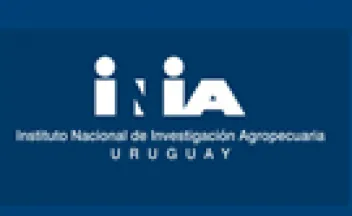Instituto Nacional de Investigación Agropecuaria
Efecto de la suplementación infrecuente en terneros Holando pastoreando avena. [Resumen]

RESUMEN. El objetivo del trabajo fue evaluar el efecto de la suplementación infrecuente sobre el desempeño de terneros Holando recién deslechados, pastoreando avena en invierno. Fueron utilizados 66 terneros Holando, con PV medio de 105.3±13.7 kg. Los animales fueron asignados a los siguientes tratamientos:T1, 2% del PV de asignación de forraje (AF) de avena + 0.7% del PV de grano partido de maíz todos los días (TLD); T2, 2% del PV de AF de avena + 1% del PV de grano partido de maíz de lunes a viernes (LaV); T3, 2% del PV de AF de avena.
Uruguayan family farming improvement project.

While the agricultural sector in Uruguay has achieved a significant growth over the past decade, it has been uneven with a large small farmer sector lagging behind. The Ministry of Livestock, Agriculture and Fisheries (MGAP) estimates that 63% of Uruguayan farms are family farms (FF) occupying 15% of the country’s land under agriculture and livestock production but productivity is well below national average. Uruguayan family FF are mainly dedicated to beef and sheep production.
Co-inovação em sistemas familiares de gado de corte na Região leste do Uruguay. III:Imacto na sustentabilidade dos sistemas de produção. [Co-innovation in family livestock systems in eastern Uruguay. III:Impact on farming systems sustainability]

ABSTRACT. In Uruguay, livestock production involves 65% of the family farmers and more than 70% of the total area of the country. Most family farms are cow calf systems being natural grasslands the main source of animal feed. Natural grasslands constitute low cost forage and offer several ecosystem services. In the last 10 years the number of livestock family farmers decreased drastically.
Co-inovação em sistemas familiares de gado de corte na região leste do Uruguay. II:Abordagem metodológica em estabelecimentos de referência. [Co-innovation in family livestock systems in eastern Uruguay. II:Methodological approach at farm-scales level]

ABSTRACT. In Uruguay, livestock production involves 65% of the family farmers and more than 70% of the total area of the country. Several technologies have been generated by researchers to increase economic and productive results in beef-cattle production systems. However, these technologies are poorly adopted and have a relative low impact on the sustainability of the farming systems. Among other reasons, this could be due to the difficulty in combining all the information in a particular productive system.
Paginación
- Página anterior
- Página 56
- Siguiente página
